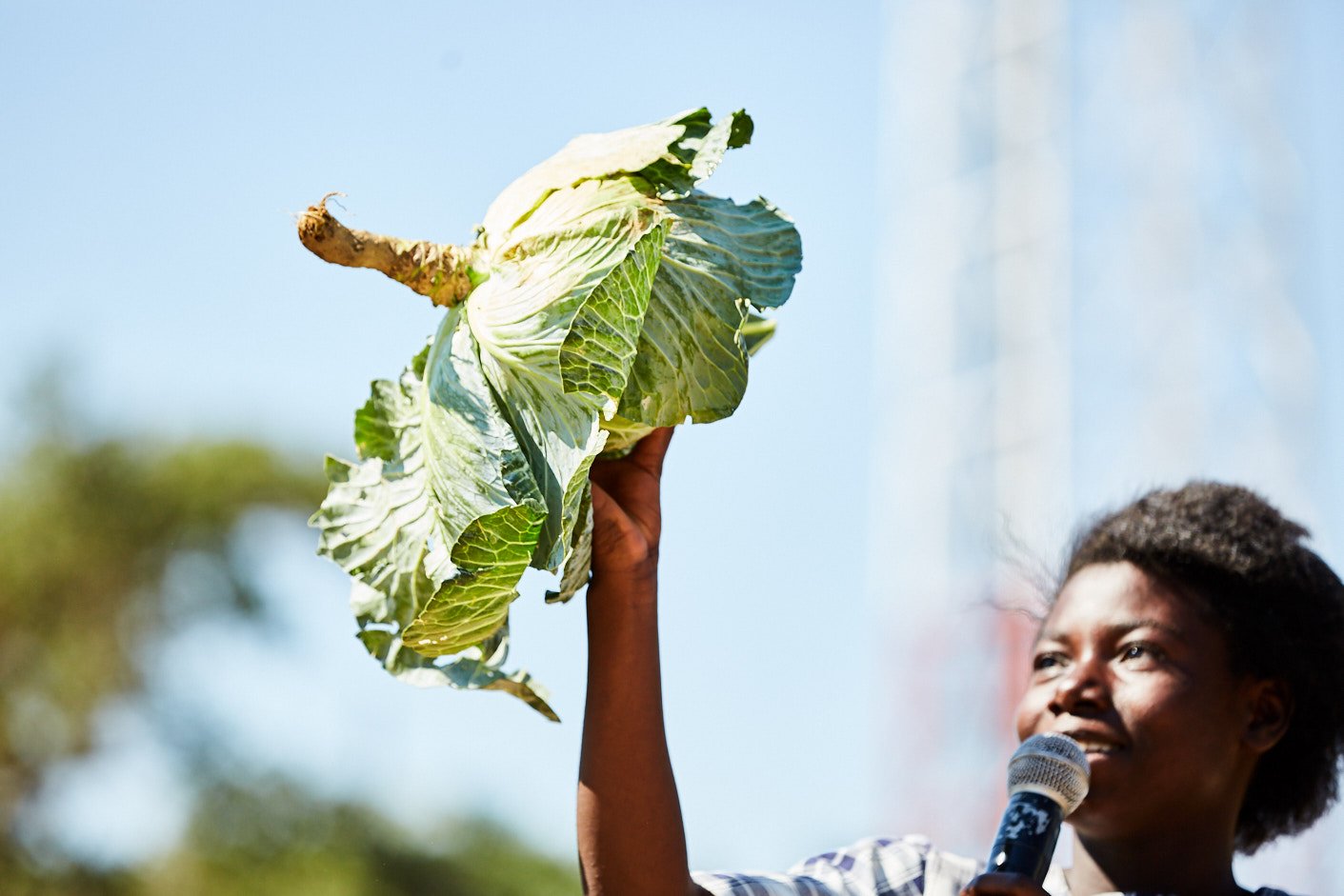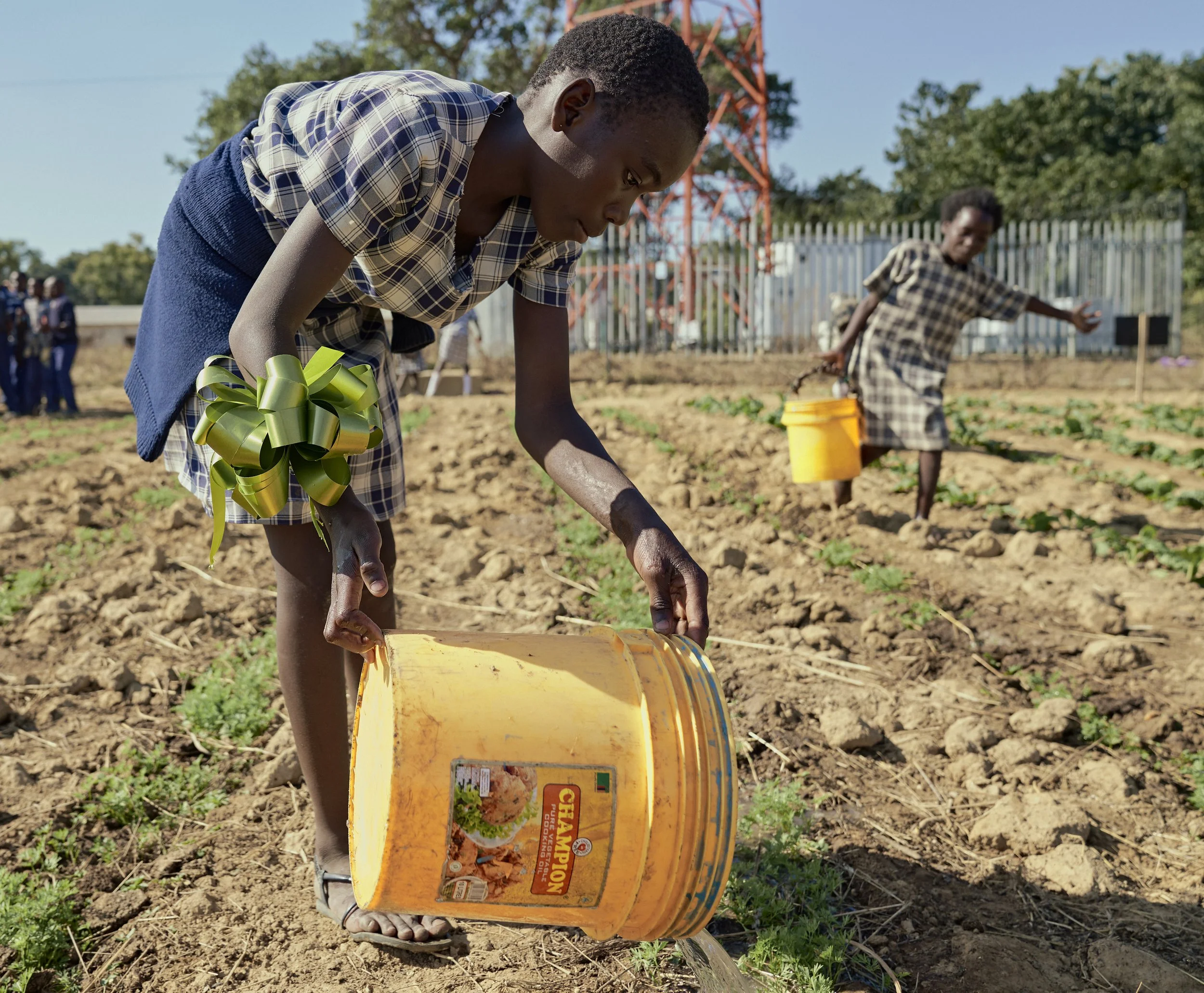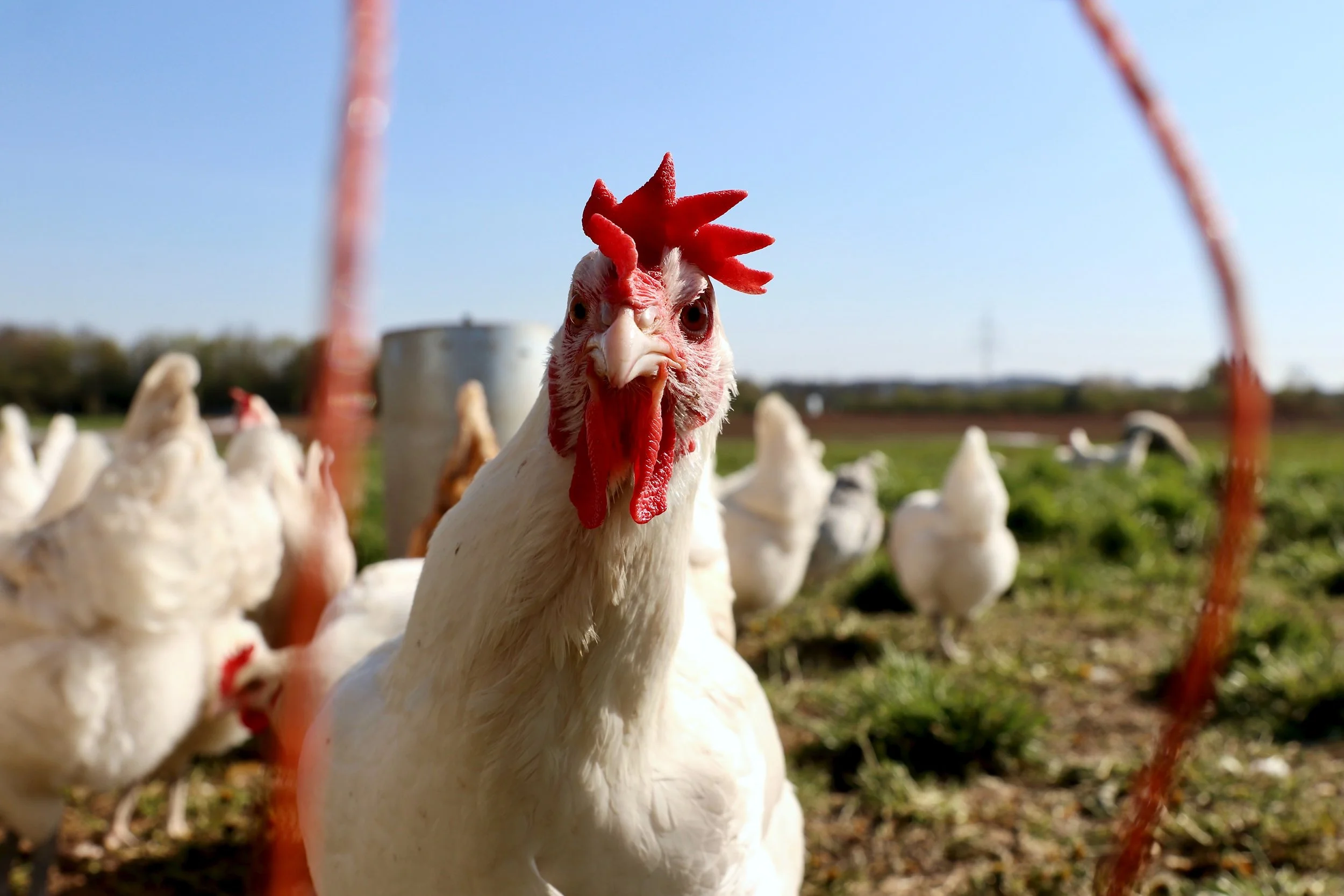Zambia is one of the poorest countries in the world, with little hope and few opportunities for economic advancement. In fact, 64% of Zambians live on less than $2/day (USD) and, to make matters worse, public school is not free in Zambia, forcing many families to choose between putting food on the table and educating their children.
By working directly with schools on the outskirts of Lusaka, Zambia’s capital city, we are able to implement farming programs that help provide meaningful nutrition to school children—the majority of which are undernourished. Furthermore, by participating in the cultivation of onsite gardens and livestock, these children are also able to learn important agriculture skills and basic business knowledge that can help improve their families’ economic futures.
6
SUSTAINABLE
FARMING PROJECTS
1800
CHICKENS
RAISED
8000
CROPS
PLANTED
1900
CHILDREN
NOURISHED
9000
COMMUNITY MEMBERS
IMPACTED
*The numbers shared above are estimates based on reports from participating schools.



How it Works
We carefully vet each of our school partners to ensure that their teachers and administration have sufficient resources to ensure the success of a farming project. Once those criteria are met, our team of native Zambian program coordinators meet with school teachers to identify which nutritional deficiencies in the community should take priority—for example, inadequate access to protein, fruits or vegetables. Based on these needs, the project will begin with the cultivation of either a garden, a chicken farm or some other form of livestock, with the ability to add additional components to the farm over time.
The school’s own teachers and administrators are trained in practical agricultural concepts with the goal of leading each farm project independently. The farm then plays a role in the curriculum and supplemental nutrition of local students. All labor is performed by teachers, students and other local volunteers, so if there are ever excess crops, the school is encouraged to sell them for a profit, investing those funds into the future growth of the farm.
To us, the success of this seemingly simple model is that it encourages school attendance by eliminating the choice between education and feeding one’s family. Furthermore, we have seen—time and time again—that the families in the communities surrounding these schools often opt to grow their own personal gardens or to raise livestock using the skills they have learned through our projects. For us, this is an incredible sign of sustainability and long-term impact, achieving our ultimate goals of increased self-reliance and economic opportunity among impoverished Zambians.
“Before Day by De came into our lives, we had challenges like paying for children to go to school, and most parents failed to buy food for their homes. But ever since the Day by De Foundation came into our lives, the village has really changed. People are now able to raise some money to buy their own food.”
Wana Shalom, Shamiyoyo, Zambia







